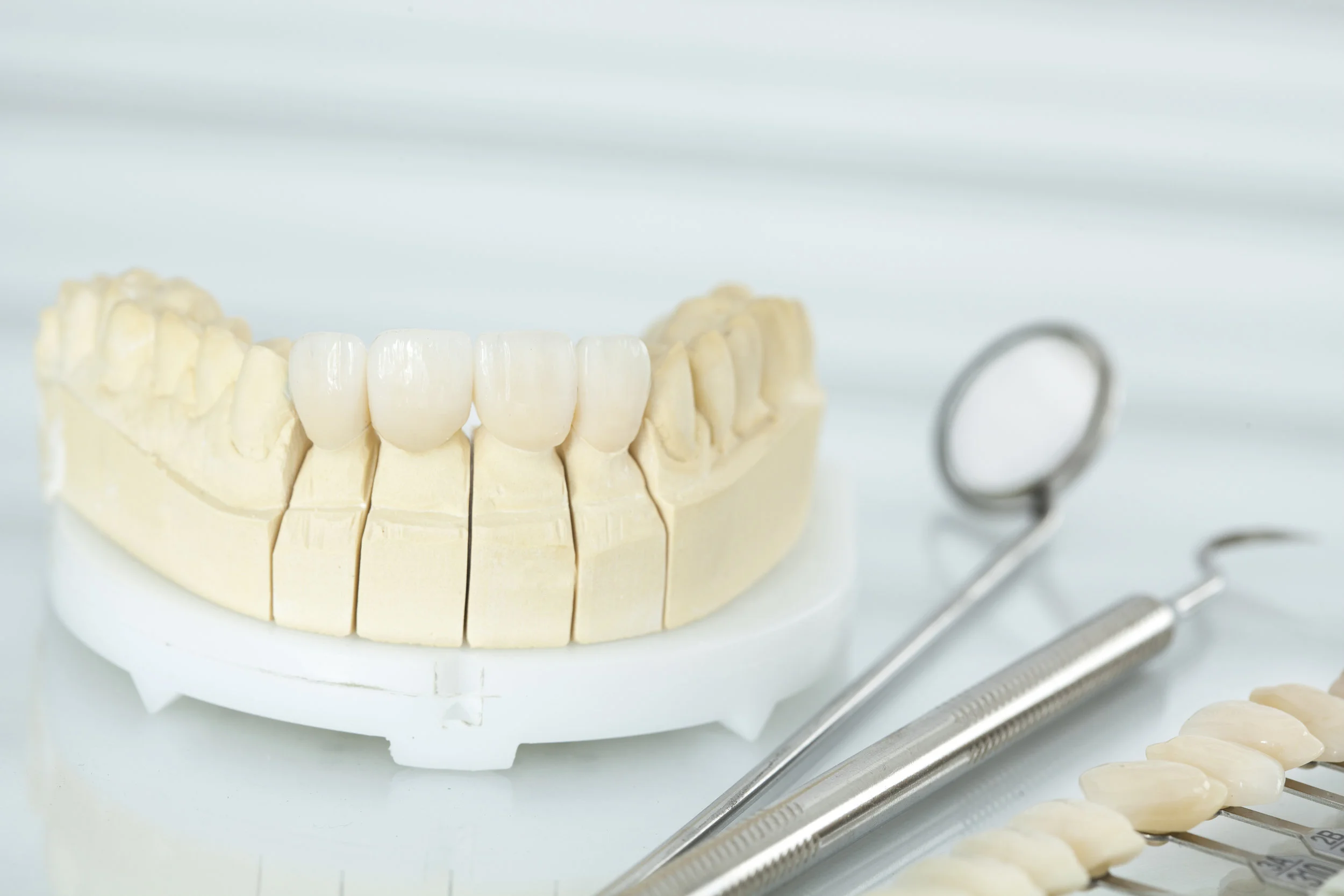CROWNS
If a tooth has lost too much tooth structure from a fracture or cavity, a crown will be recommended over a filling. A dental crown is a covering that encases the entire tooth surface, restoring it to its original shape and size. A crown will help protect and insulate the tooth and prevent further breakdown of the tooth.
Although there are several types of crowns, porcelain (tooth colored crown) are the most popular because they resemble natural teeth. Porcelain crowns are highly durable and will last many years. However, each case is different. A clinical exam will reveal which type of crown material will be best for you.
BRIDGES
It is important to replace missing teeth as a series of changes can occur when teeth are lost. Adjacent teeth may start to drift forward or backwards into missing spaces and opposing teeth may start to shift up or down into missing spaces. These drifts may cause your bite to get uneven and vulnerable to fracture.
A dental bridge is a fixed (non-removable) appliance and is an excellent option for replacing missing teeth. Dental bridges are highly durable and will last many years with care and scrupulous hygiene.
A crown or bridge procedure usually requires two or three appointments. The first step will include preparing and shaping your tooth so the crown will properly adapt to the tooth. After the tooth is adequately prepared, a high-quality dental impression will be taken. Once the impression is taken, a custom temporary crown will be created for your tooth until your permanent crown is fabricated and ready to be placed.
At your second and/or third appointment your temporary crown will be removed, the tooth will be cleaned, and your new crown will be carefully placed with permanent cement. A digital x-ray will be taken to confirm proper seating. After your crown is cemented, we will provide you with home care instructions to maximize its longevity.


